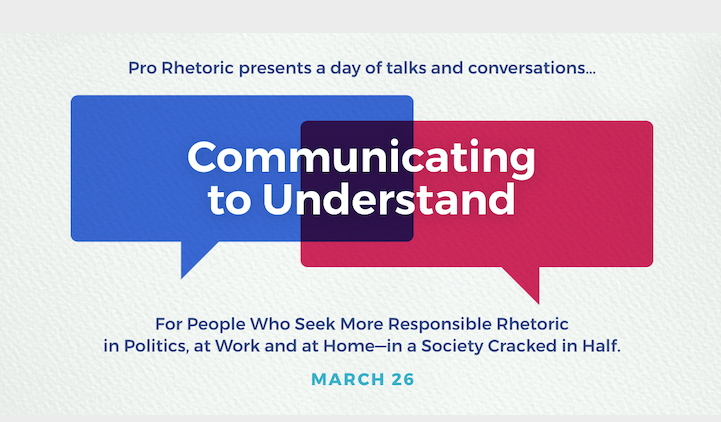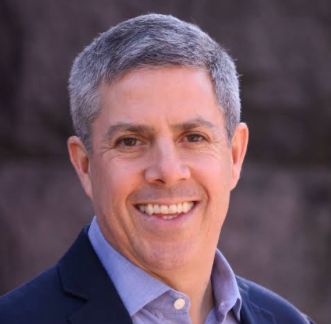From “Oratorical Inflation” … to Rhetorical Recession?
September 22, 2021
In 1964, The New York Times fretted in great detail about a gathering “army of speech writers who may bore democracy to death.” These days, I have another worry.
Intrepid Vital Speeches rhetoric editor Neil Hrab unearthed a great speechwriting-industry time capsule, written by New York Times’ reporter Don Oberdorfer and published on Sunday, April 26, 1964—surely to the stifled consternation of many working speechwriters at the time.
The piece is titled, “Vast Ghostland of Washington; Behind ‘the Man Who’ Are the Men Who Put Words in His Mouth—an Army of Speechwriters Who May Bore Democracy to Death.” It purports to reveal the mass spread of speechwriting, and consider its implications.
More than half a century on, it may be a guide to the future of a changing business.
Something Boring This Way Comes
“Ghost writers have now arrived,” Oberdorfer begins:
Former Secretary of Agriculture Ezra Taft Benson candidly volunteered in his recent memoirs that most of his speeches in office were ghost‐written. Emmet Hughes, frequent speech writer for President Eisenhower, published an excruciatingly detailed book on his spectral experiences. Two of President Kennedy’s writers, Theodore C. Sorensen and Arthur Schlesinger Jr., are now busily at work on their respective memoirs.
EVERY major agency of the Federal Government employs speech writers, though they are usually tucked away on the payroll as “information specialists” or “special assistants.” Washington attorneys, lobbyists, journalists and career officials are also pressed into service as part‐time speech writers, and even well-known public figures are not immune. For example, Adlai Stevenson and Senator Hubert Humphrey, both of whom rate writers of their own, have recently served as contributors to speeches by President Johnson.
As you can tell by his tone, Oberdorfer is not inclined to celebrate a great new Speechwriting Age.
Calling speeches written by speechwriters typically “eminently forgettable,” Oberdorfer laments: “Hired ghost writers make possible thousands of aimless and unnecessary speeches each year by men who are too busy to write them …”
Why?
“As long as Americans cling to the quaint tradition that citizens cannot gather in public for a meal without an address as a digestive, the demands on public officials will be great. Moreover, our leaders have a justified need to explain themselves in public to myriad groups and on all sorts of occasions.”
Oberdorfer’s research revealed to him that all not all speechwriters or their speakers operate in the same way. Noting that President Johnson took a strong hand in making his speechwriters’ scripts his own, Oberdorfer acknowledges: “Some ghosts are trusted full‐time aides in constant contact with both the boss and his area of govern mental specialty. Others pursue their calling with tape recorders to capture the prospective speechmaker’s private ramblings, files of his prior utterances and volumes of popular quotations. A few ghost writers who labor as minor functionaries in the Washington bureaucracy are ushered into the presence of the great man only rarely, if at all.”
Oberdorfer sympathizes with speechwriters who toil away on a script only to have it edited to death, or ad-libbed to oblivion, quoting one high-level Washington speechwriter : “‘A group of us were comparing notes about the trade the other day … and we decided our pet peeve was a fellow like Stewart Udall who delivers the first line or two of your speech and then ad‐libs the rest on his own. We like the kind of guy who’ll stand up there and read it like a man.’”
In more subtle and gender-inclusive terms, most speechwriters still prefer to work for “that kind of guy” today.
Eventually, Oberdorfer must justify this long Sunday thumbsucker by predicting the profound problems the proliferation of speechwriters portends.
Do ghostwritten speeches “endanger democracy by deceiving the citizenry?” Oberdorfer asks.
The judgment from this corner is probably not. This is the era of televised debates, press conferences and intensive reportorial access to public officials. Unless the press is asleep, it would be difficult for some incompetent throttlebottom to pose convincingly as a brilliant, political leader on the mere strength of a hired ghost writer.”
A more realistic danger is that the mounting volume of ghost‐written verbiage by people with nothing much to say will deaden our public discourse, producing something akin to oratorical inflation. Ghost‐written pronouncements can be lethal only if they bore us all to death.
Where Have all the Stemwinders Gone?
American democracy may or may not be near death, 57 years later—but it wasn’t boring political speeches that brought us here.
And what I’m worried about more than too many speechwriters these days, is too few.
Too few of the rigorously intellectual, erudite and eloquent men—and eventually, just as many women—who became the only people in many organizations, government, corporate and nonprofit, who could articulate the leader’s philosophy in any detail beyond a slogan or two.
Who could write the position paper behind the PowerPoint deck.
Who bothered to consider what the audience outside the institution’s walls might be need to hear, beyond merely what the institution wanted them to know.
Who took care with the words, and helped leaders sound at least a little more articulate and literate and imaginative and human than their cautious instincts and technocratic educations would have otherwise led them to be.
Well-written speeches are not a proper “digestive” to a meal, any more than a great symphony is soothing background music, or a literary novel good bedtime reading.
And while speeches (and other forms of leadership communication) need not be upsetting to the stomachs of their audiences—they ought to engage those guts, and the brains they’re connected to—in sympathy with the speaker, with others in the audience and with the cause of the commonweal.
A few leaders can do that on their own, with their own skills and instincts.
But most busy leaders of large organizations in a complex society can use some help, with their rhetorical strategy, research, language, and delivery. Speechwriters provide those leaders the help they need, to be more thoughtful communicators than they otherwise would be.
Speechwriters’ existence is more widely accepted now than they were in 1964. But their fingerprints are more offensive. A president who got up and said something even as writerly as, “Ask not what your country can do for you, ask what you can do for your country,” would be pilloried by nouveau nattering nabobs of negativism. And business leaders have always been even more loathe to “reach for the marble,” as presidential speechwriters used call grand phrase-making.
“You have to hide the rhetoric,” a corporate speechwriter told me the other day.
But you have to have the rhetoric, too—because that’s what carries the ideas, that’s what communicates the feeling, that’s how a leader creates the connections that an organization or a community needs to hold together, and a society needs to move together.
That’s not a trend. That’s an ancient tribal truth.
May speechwriters continue to provide the help their leaders need, the very best way they know how, and as quietly as they must.
“Oratorical inflation” might have been a danger once.
Rhetorical recession is the worry now.



